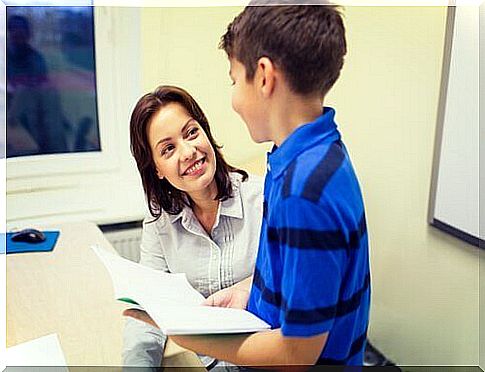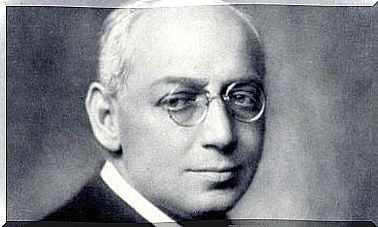The Work Of An Educational Psychologist

An educational psychologist examines cognitive processes and behaviors in an educational context. This usually means children in schools and we too want to deal in more detail with the work of educational psychologists in schools in this article.
But what role do they play in such an institution? And what exactly is your job? Most educational psychologists would like to work in schools or similar educational institutions after they graduate. Here, however, they encounter a major problem: At the moment, educational psychologists are not employed in many countries. As a result, most of them are more likely to become outside counselors or clinical psychologists.
Now we might assume that psychologists and counselors would be the same in the school context. However, this is not entirely true. Although their training enables them to act as counselors, school psychologists and counselors in schools are responsible for different goals. Let’s see what the differences are.
What do school counselors do?
School counselors are indispensable in an educational institution as they are responsible for psycho-pedagogical intervention. Orientation aids of all kinds are a service that schools offer their students so that they can shape their studies and their long-term goals in such a way that they are able to take full advantage of the educational offerings. School counselors are therefore also responsible for dealing with the educational problems that arise in the school environment.
A school counselor focuses on the students, taking into account their environment and the school community. Hence, it can be said that this specialist works in the applied field of educational psychology, making use of the resources that various studies of psychology and pedagogy have made available.

What exactly school counselors do:
- They advise students and their families, but also teachers, in order to improve the quality of education and the academic environment.
- They identify the educational needs of the students and act accordingly.
- They ensure that all students receive adequate and continuous schooling, regardless of how diverse their needs may be.
- They contribute to the interaction between the members of the educational community and thus improve communication.
- You will work with everyone involved to identify and correct learning difficulties.
- They offer psycho-pedagogical advice for teachers and school principals. In this way, the teaching staff also learn how to respond to the special needs of the students.
- They convey the diversity of the students to the teachers in order to enable them to offer an inclusive and universal education. No student should feel left out of the educational environment.
- You will take part in the school’s decision-making process as well as in teachers’ meetings. This way they stay informed and involved in what is happening in the school.
And what does an educational psychologist do?
While school counselors are essential, they do not cover all of the school’s needs in the field of psychopedagogy. For this reason, it is important to have a specialist on board who can take care of the aspects that have not yet been mentioned. This professional is the educational psychologist. Unlike a school counselor, an educational psychologist should be more research and evaluation focused.
Both schools and education are constantly changing, which means that the continued use of non-personalized, standardized methods leads to rather poor results. This explains the need for an educational psychologist. Because he knows how the upcoming changes will affect in detail.

Another differentiating aspect is that educational psychologists do not deal with the students per se. They deal with the whole school community and the institution itself. You must always be aware of teachers’ teaching methods and ensure that the way they teach students is correct and appropriate. In addition, they are responsible for ensuring that the faculty is responsive to all educational requirements.
Educational psychologists in schools act as supervisors and planners. They observe how students learn and process information and are keen to continuously improve. They base their work on scientific knowledge and never on personal criteria. An essential aspect of their work is that they work together with the various professionals in the school as well as with tutors, parents and of course the students themselves.
Your main goal is to hone the most basic aspects of education to ensure progress. In this way, they help the educational institution achieve the expected results and provide students with the quality education they deserve.
Necessary changes in the education system
Up until now there are very few schools with educational psychologists. Indeed, the school counselors addressed often play the role of counselors and psychologists. Ensuring an adequate educational environment is a difficult task that comes at a high price. Failure to meet this requirement is, however, even more expensive for us.
Education should not be guided by political or economic interests. From a productivity and effectiveness point of view, it is best to have a whole team of professionals do their job, rather than having a few (or even one) take care of everything just to save money. Also overloading the school counselor is more than counterproductive and why it is so important to have an educational psychologist at the school. Education professionals and academics from all disciplines should work together to improve the education system.
“Education is the ticket to the future, because tomorrow belongs to those who prepare for it today.”
Malcolm X









